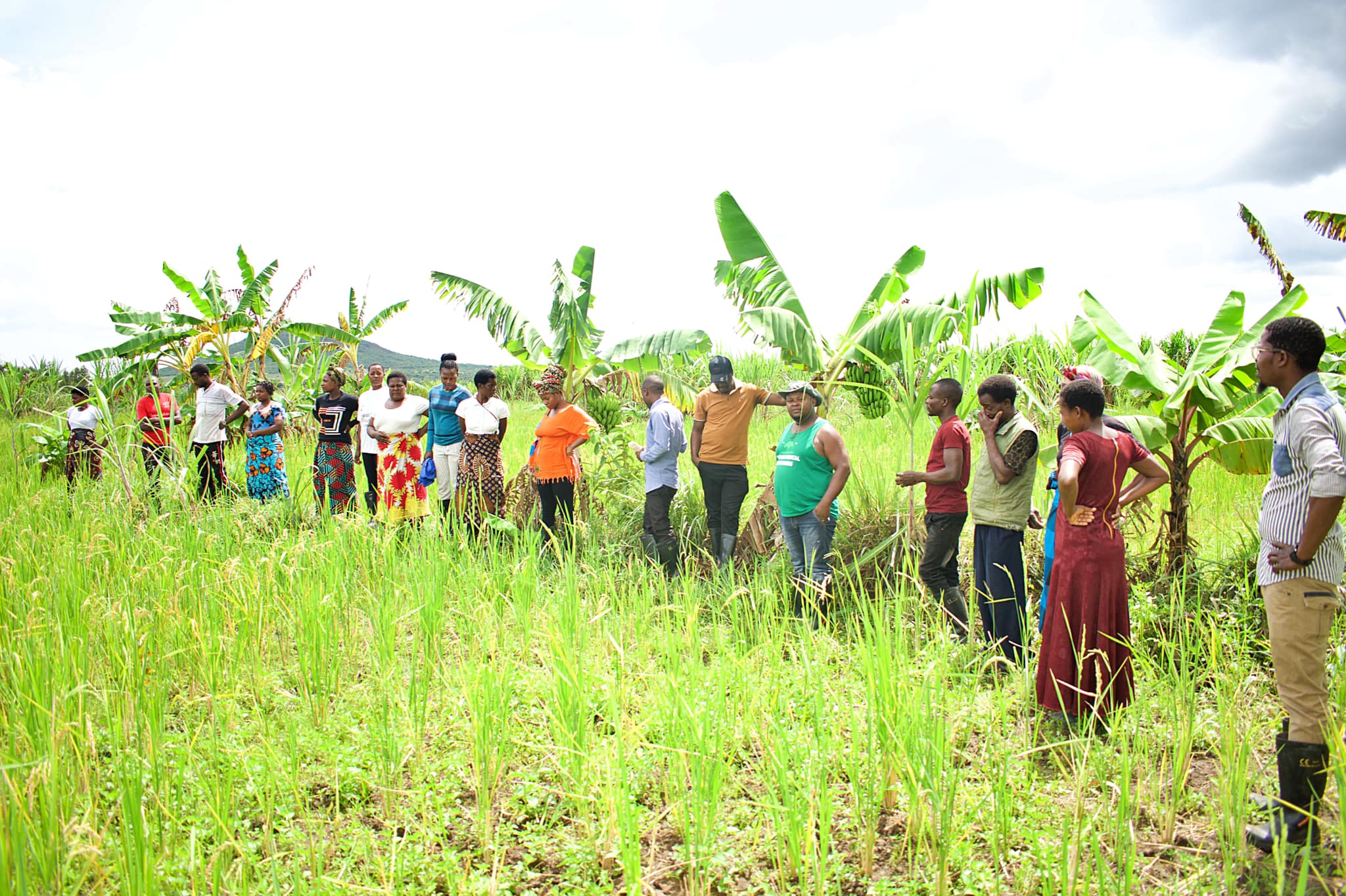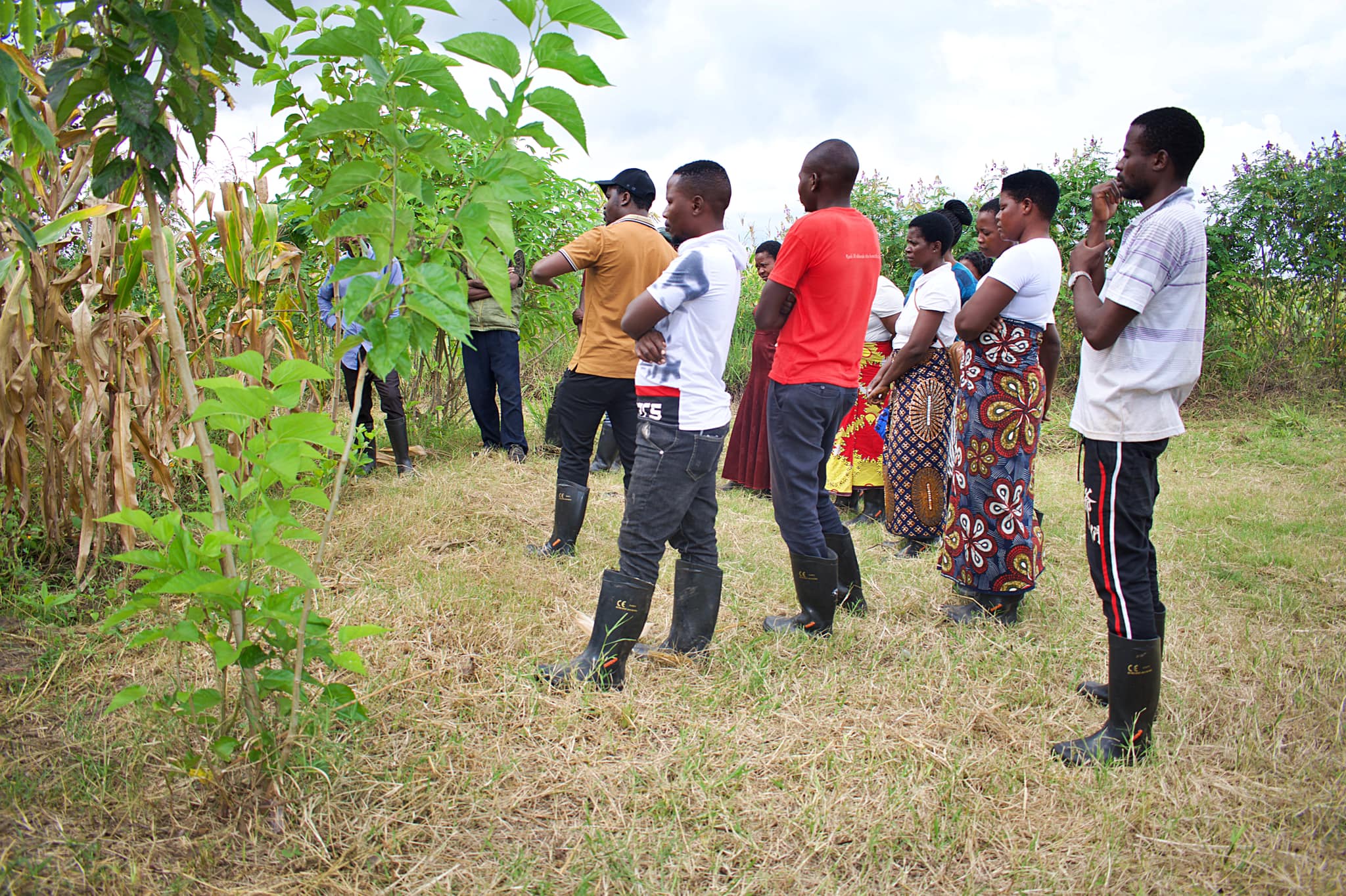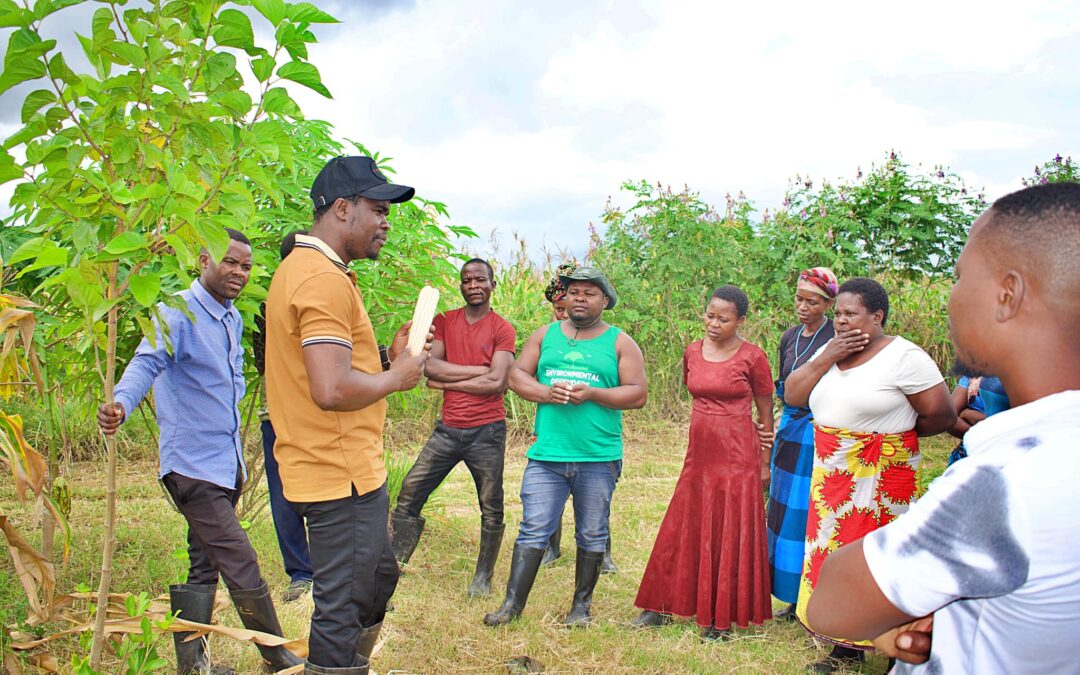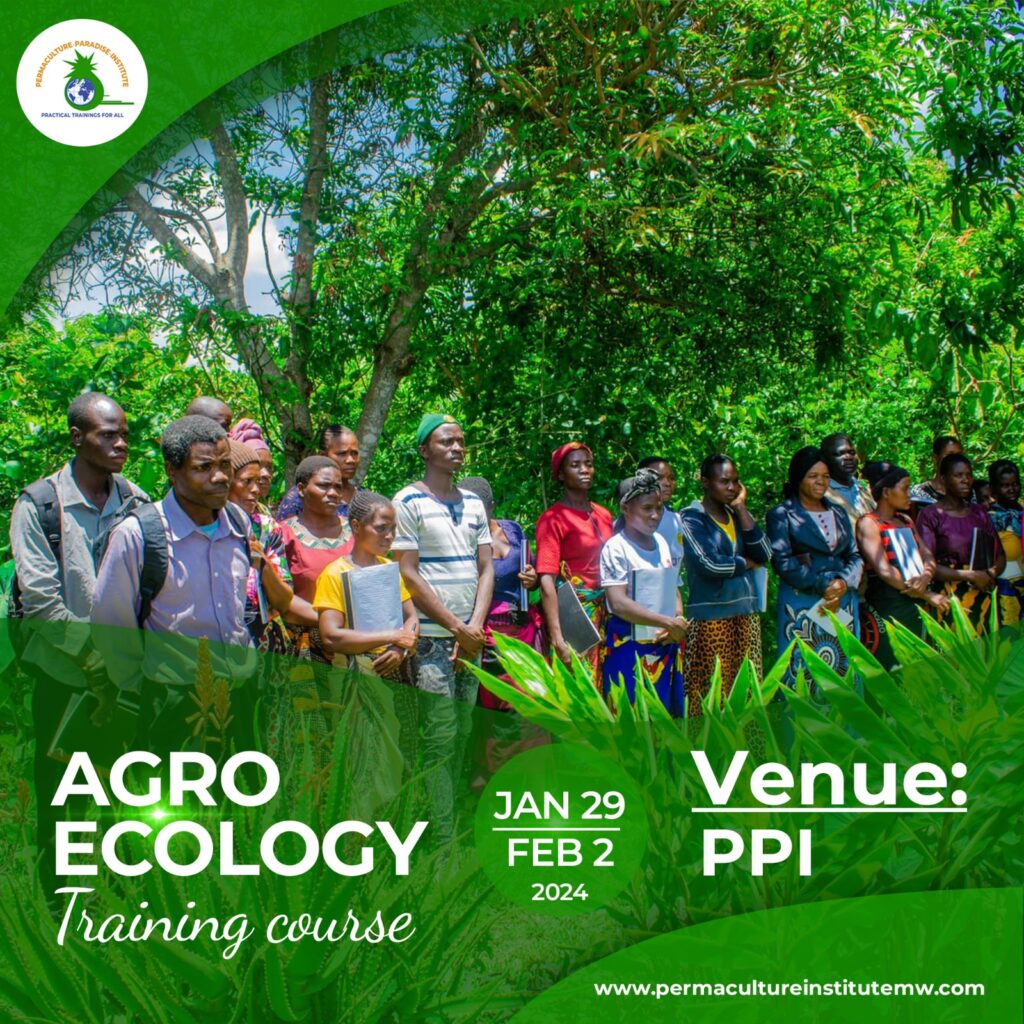Madisi Dowa — The Permaculture training course reached a new peak on day four, as participants in Madisi Dowa continued their journey into the world of sustainable agriculture and ecological harmony. The gathering of diverse minds from Opulence Malawi, lead farmers, and We Clean We Green-Malawi delegates was united in their mission to create lasting, impactful change in Malawi’s agricultural landscape.
Day four was all about mastering the intricacies of ecosystem management. Participants were introduced to advanced techniques in soil health, biodiversity conservation, and agroecology. Practical sessions demonstrated the value of creating diverse, balanced ecosystems that support both agriculture and wildlife.
Workshops on soil microbiology revealed how maintaining healthy soil contributes to thriving crops and sustainable yields. Attendees learned about the significance of composting, cover cropping, and other methods that nurture the earth and provide a foundation for successful farming.
One of the day’s key focuses was sustainable water management. With water scarcity posing a significant challenge in many parts of Malawi, learning to make the most of this vital resource was essential. Participants explored rainwater harvesting, drip irrigation, and other water-saving techniques that can boost crop productivity while conserving water.

We Clean We Green-Malawi delegates led discussions on the importance of protecting water sources and ensuring the longevity of freshwater ecosystems. Their insights reinforced the need for integrated approaches to water management that consider both agricultural and ecological needs.

Day four emphasized empowering participants to become change agents within their communities. Attendees were provided with resources and strategies for sharing their newfound knowledge with others. The training encouraged them to take on leadership roles and inspire their peers to adopt sustainable practices.
Networking sessions allowed participants to form connections with like-minded individuals and organizations, paving the way for future collaborations. Building a support network was seen as key to sustaining momentum and driving long-term change.
As the fourth day of training concluded, participants felt equipped with the tools and insights needed to create a positive impact. The training course had broadened their perspectives and provided a pathway to progress, from improving food security to enhancing environmental stewardship.
The journey in Madisi Dowa continues to be one of growth, collaboration, and innovation. As the course nears its conclusion, attendees remain dedicated to carrying forward the lessons learned and transforming their communities for the better. Stay tuned for more updates from Madisi Dowa as the training course continues to shape a sustainable future!



